Spotlight
Memorizing Scripture in the Age of Google
Published
3 years agoon

By Nick Mahabir
A few years ago I found myself seated at a table with other ministers at a prayer breakfast. As we waited to be served, the conversation turned to the memorization of Scripture. A comment from one of the ministers caught my attention and lingered with me. He said, “We have no need to memorize Scripture today because we have Google.”
One by one, other ministers voiced their opinions about the irrelevance of memorization in today’s world. One repeated the assertion given by a prominent social educator, that memorization was the lowest form of learning. At that point I realized that silence was the better part of valor, so I kept my mouth shut and my opinion to myself. By the end of the breakfast, I felt I had been given a clear idea of the direction of pastoral education and Christian ministry as a whole. Yet, I am willing to embrace memorization as a valid form of learning and to briefly examine some of the benefits of memorization.
Memorization is not optional (see Deuteronomy 4 and 6).
With respect to divine Scripture, God’s command to the Israelites was to learn the commandments. He even offered several mechanisms to help with the process: learn the laws, constantly and continuously talk about them to your children, tie them to your hands and wear them like a headband on your foreheads, paint them on your doorposts. In other words, do what you must to have God’s Word planted in your life so that it becomes second nature to you. Then it becomes a lifestyle. How can you determine what God is saying if you are not intimately familiar with the text?
Memorization facilitates the believer’s edification and sanctification.
King David said, “Your word I have hidden in my heart, that I might not sin against You” (Psalm 119:11, NKJV). When Satan slings his arrows at us, we may not have a Bible on hand to turn to for an appropriate text. Neither will the devil wait around for us to Google a reference. We need to have the Word embedded in our hearts (and in our minds) so that when the tempter takes his best shot, we can respond immediately. Satan’s arrows of doubt regarding the believer’s salvation need an immediate response . . . from the heart and the mind. One pastor of a bygone era remarked quite correctly, “This book [the Bible] will keep me from sin, or sin will keep me from this book.” Memorize God’s Word always and often. It will help you live a clean and holy life in the sight of God.
Memorization of Scripture is the only sure way to live in spiritual purity and victory.
In Genesis, Satan tempted Eve by casting doubt on the accuracy and integrity of God’s Word. He questioned, “Did God say?”
Unfortunately, Eve was not prepared for the biggest challenge of her life. Sometimes our very lives depend on knowing God’s word. Around fifty years ago during a revolt, an Open Bible pastor in Grenada was confronted by one of the proponents of the Black Power Movement. The man placed a machete on the pastor’s neck and asked him, “Pastor, what color is sin?”
The man fully expected the pastor to respond that sin was black. Then he would lose his head. But this pastor who knew his Bible responded, “The Bible says though your sin be as scarlet . . . .”
The pastor’s life was saved! There was much thanksgiving in the Church!
“Your word I have hidden in my heart, that I might not sin against You”
Psalm 119:11, NKJV
Come with me to the wilderness in Luke 4. Jesus had fasted for forty days. He was tired, weak, and desperately needed nourishment. Satan came along quoting Scripture. During each of three temptations, Satan tried to twist God’s Word to his advantage. Nonetheless, on each occasion Jesus responded with appropriate quotations from the Scripture. Although He did not have a scroll, Jesus responded correctly because He had memorized the Scriptures, giving Him victory on each occasion. If Jesus needed God’s Word to overcome the devil’s temptation, do we need it any less?
Scripture memorization empowers evangelism.
Let’s take a walk on the road to Emmaus (Luke 24). Two men were walking home when Jesus, whom they did not recognize, joined them. Hearing them express sadness and confusion about His death, the risen Lord immediately began to refer to the Old Testament Scriptures (from memory) and pointed out the prophecies concerning Him. At the end of the journey (and the conversation), their testimony was that their hearts “burned” within them when Jesus opened the Scriptures to them. We can experience that type of response only when we know the Word of God in our hearts and minds. Remember, the Word of God is quick, powerful, and sharper than a two-edged sword (Hebrews 4:12). There can be no space between God’s written Word and its place in our hearts.
It is worth noting: the Holy Spirit has promised to bring back God’s Word to our remembrance (John 14:26). If God’s Word is not in our hearts to begin with, there is nothing to bring back.
Memorization of Scripture enriches our lives.
There is much to be said about the beauty of biblical language. Paul’s writing to the church at Colosse admonishes them to let the word of God dwell richly in them (Colossians 3:16, NKJV). To “dwell” indicates to live in, to inhabit, to take up residence. The Word of God should be second nature to the believer. It is uplifting to hear a believer of any age quote an appropriate Scripture in a specific situation. In addition, think of the impact it has on our own lives. Our language is transformed, elevated. Through our spoken words, Scripture shines a light in dark places.
Satan himself memorizes Scripture. In the garden and in the desert, he utilized Scripture to his own ends. If our mortal enemy has tools in his war chest against us, can we afford to be so ill equipped?
What is the appropriate age for memorization? The gospels indicate that at age twelve Jesus was in the temple asking the teachers questions and even answering their questions. No wonder they were filled with wonder! A Catholic priest once remarked that if he had a child until the age of seven, that child would be a Catholic all his life. I still remember the catechism I memorized at age five in Catholic school. Memorization should begin as early as possible. And yes, it is the parents’ duty to teach the child the Scriptures. No one else can be such an effective substitute.
I sometimes wonder what has happened to Scripture memorization in our Sunday schools. Elegant videos, PowerPoint presentations, and games will never replace the memorization of Scriptures in the hearts of our children. Could this be one of the reasons we are losing our young people at an alarming rate today? It is worth noting that all Hindu and Muslim aspirants to their particular ministry require them to memorize their holy scriptures by age twelve.
Coming from a Hindu background, I knew nothing about the Bible when I came to Christ at age twelve. Even though I attended Catholic schools, I had never seen a physical Bible until I came to Christ. The catechisms were Bible related, but the church did not teach the Bible itself. My first Bible was given to me by a missionary who received it from a church in the U. S.
Today, after fifty years of serving the Lord, I say without reservation that ninety percent of what I know about the Bible was handed down to me through my Sunday school teacher. With all respect to my professors in Bible college, seminary, university etc., my Sunday school teacher, with only a fifth-grade education, taught the BIBLE. Each week she would assign a particular verse to be memorized by the class. Then she would call me aside and assign a particular chapter to me. This practice was not just for one week or two, but throughout my formative years. After I became the church’s pastor at age fourteen, my Sunday school teacher became my mentor. Next to my mother, she holds the highest place of admiration and affection in my life.
With respect to the minister who indicated that Google is the answer to our scriptural needs, allow me to ask a couple of prophetic questions:
1. What would he do if Google decided the Bible is to be removed from its database because it is a “hateful” book?
2. Or worse yet, what would he do if Google would replace the authentic Bible with one of their own choosing, with all the inclusions of the present culture?
In closing, fellow pilgrims, I challenge you to be all that Christ wants you to be. Memorize those Scriptures!
About the Author
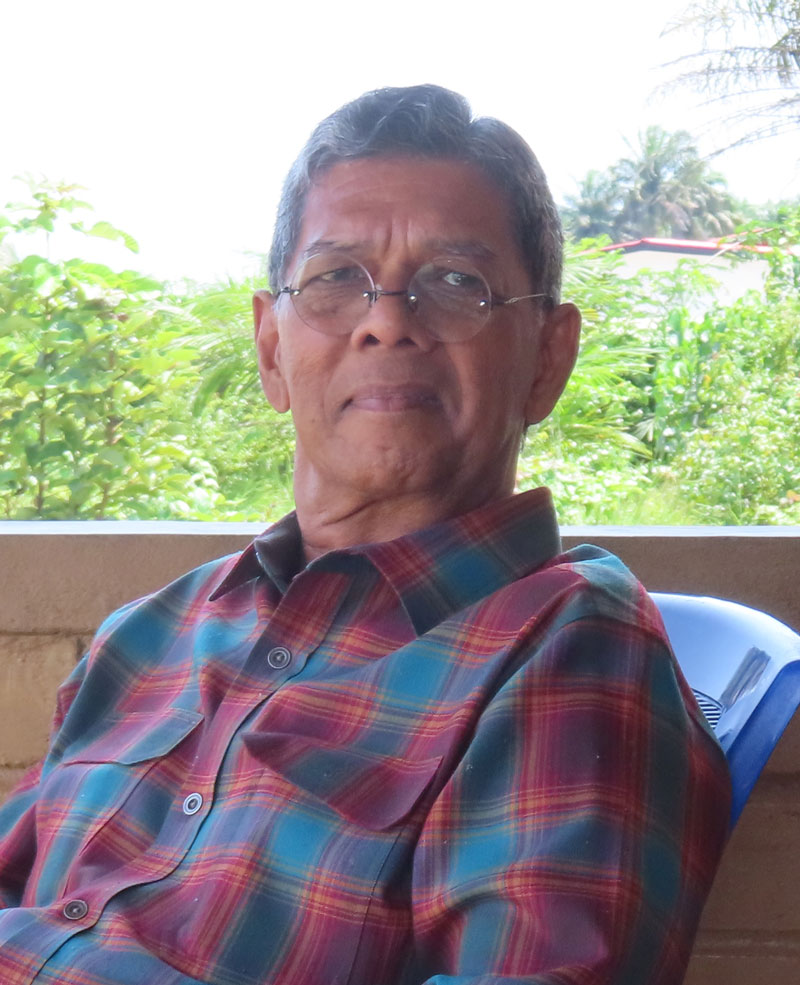
Nick Mahabir, a credentialed Open Bible minister who lives in Germantown, Maryland, is an itinerant evangelist, pastor, and teacher. He earned his master’s degree in leadership from Georgetown University and ministers as a leadership dynamics instructor for Open Bible’s Global Church Planters Academy.

Spiritual direction…hmmm, sounds like what I get from the Holy Spirit when I pray, so why would I need to meet with a spiritual director when I can do this on my own? Seems unnecessary, right? Not to mention, I’m a guy; we never ask for directions.
That was my thinking a few years ago, until the day I got a call from another minister who was training to be a spiritual director. She needed to log a certain number of practice hours to finish her training, and she asked if I would be her “guinea pig.”
The call had “coincidentally” come in the middle of a challenging season; my pastoral duties felt relentless, and I was going through a profound life change. I felt empty inside as I wrestled with a nagging question: “Am I really hearing God clearly?” Unable to talk through my struggle with very many people, I had been feeling spiritually stuck. The person calling was someone I trusted, so I agreed to be a part of her training process. I thought I was helping her out, but little did I know this decision would stand as a cornerstone of my spiritual and mental health moving forward.
Spiritual direction is like having a wonderful (dare I say, sacred) friend who walks alongside you and gently guides you to notice and respond to the presence of God in your life.
Spiritual direction is like having a wonderful (dare I say, sacred) friend who walks alongside you and gently guides you to notice and respond to the presence of God in your life. Believe it or not, even the best of us can miss Him in the middle of our emotional and mental upheavals. Unlike traditional counseling or mentorship, spiritual direction focuses on deepening our relationship with God, helping us become more aware of His presence in our everyday experiences.
A Transformative Encounter: Experiencing the Father Three Ways
There’s one spiritual direction session that particularly stands out in my mind. My mom had just passed away, and my dad was in the final stages of his life. It had been a tough year of loss, and I was doing my best to keep it together. As I shared with my spiritual director, she made a suggestion. She said, “Gary, take the next ten minutes to sit before the Father and ask Him what He wants to say to you in this season.”
I muted the microphone, sat in silence, and stared out the window of my office into my backyard. It was a beautiful day, and the wind was rustling through the trees. Things moving by some unseen force. As I sat there, God reminded me of three snapshots (memories) with my dad. The first was a memory of being at the beach with him when I was four and his taking me into the deep water. I remember protesting that I didn’t want to go out there but also feeling safe because I was held tightly in my father’s arms. The second was a memory of when I was twenty and we took a trip together. It was on that trip that I felt my father, through his actions, take his mantle of authority and leadership and place it on my shoulders. The third snapshot wasn’t a true memory but a glimpse into the future. I was about to visit my dad in a month – it was to say goodbye as he was in the final stages of life on earth. My agenda was simple: I was just going to spend time with Dad.
In those pictures, with the wind blowing through the trees, the Father used my father to help me encounter Him. I’ll never forget the three things God whispered to me as I pondered those three snapshots:
Gary, I’m with you; you’re safe.
Gary, I’ve given you everything you need to fulfill what I’ve called you to do; I trust you.
Gary, all I desire is for you to spend time with me and enjoy my presence.
Those past and future joys were a reminder from my heavenly Father that I could take the path ahead because He was with me. I’m not sure I would have had such a profound experience had it not been for the preceding conversation with my spiritual director and our subsequent debrief.
Integrating Spiritual Direction into Pastoral Ministry
Moments in this and following sessions have been a game changer for me, helping me become a better leader and follower. I now approach decisions with a greater sense of grounding, choosing to rely on prayerful discernment and feedback from someone who’s spiritually mature and not emotionally tied to the situations. I’ve also learned to listen better, not just to God but also to people.
Spiritual direction has been a transformative experience for me, helping me grow both personally and professionally.
Spiritual direction has also been a huge help with my mental health. Regular sessions provide a sanctuary from the incessant demands of ministry and allow me to process those stressors in a safe context. I’ve learned to be more resilient, thanks to the reflective exploration of my spiritual journey, and I feel more balanced and purposeful.
If you’re a minister who hasn’t tried spiritual direction yet, I highly recommend it. Here are a few things to keep in mind:
- Find a spiritual director who’s trained to help others on their spiritual journey.
- Make sure you prioritize regular meetings. Consistent engagement allows for a deeper unfolding of your spiritual narrative and allows for sustained growth.
- Be open and vulnerable. Don’t be afraid to talk about the good and bad parts of your spiritual life.
Spiritual direction has been a transformative experience for me, helping me grow both personally and professionally. Remember, we all need help sometimes.
About the Author

Gary Kahn
Gary Khan was born on the island of Trinidad in the Caribbean. He moved to America when he was twenty to pursue his education and calling to be a pastor. He met his wife DeLaine at Eugene Bible College (now New Hope Christian College) and upon their graduation, they were married and began working at Desert Streams Church in Santa Clarita, CA. After thirty-two years as a pastor, Gary became an Executive Director of Operations for Marketplace Chaplains. He is the author of devotionals including Reset and Greater and his most recent book, That Didn’t Turn Out the Way I Thought.

On the fifth day of creation, our wonderful God showed himself in a brand new way. He began to create the living creatures that walk among us. This expression of His creation has shown itself throughout history; from Noah’s dove, to Balaam’s donkey, to Jonah’s whale and Daniel’s lions, God has continued to use animals in His grand plan and purpose.
We can still use these animals as a metaphor for God’s love and guidance. One notable example comes from Bob Sjogren’s book Cat and Dog Theology: “A dog says, ‘You pet me, you feed me, you shelter me, you love me, you must be God.’ A cat says, ‘You pet me, you feed me, you shelter me, you love me, I must be God.’”
As true as this may be, something wonderful happens when the molds break.
[God] certainly doesn’t want to drag us from one destination to the next. He would rather we follow Him willingly, eager to remain in His presence.
In our family, we recently experienced an interesting phenomenon when it came to our pets. To understand the story better, you need to understand our animals. Ralphie is our young, spirited Maltipoo. He has never met a stranger he didn’t love. He is sweet, loyal and in many ways the ideal companion.
Then we have our chihuahua, Sally. We found Sally roaming our neighborhood in 2014 with no tags and no microchip. She had obviously been mistreated, and when I took her to the vet, they found so many things wrong with her that I was advised, “Don’t be in a huge hurry to find her owner.”
We cleaned Sally up, and two weeks later she was legally ours. While she is affectionate to us and our kids, to this day, if I lift my hand to give her a pat on the head, she winces as if I am going to hit her (something I have never done and never intend to do).
Ralphie and Sally’s unique natures show themselves on our nightly walk around the neighborhood.
Ralphie tries his hardest to pull on the leash and run ahead. He so desperately wants to lead whoever is holding the leash that he nearly chokes himself on his collar. (We’ve had to switch to a harness.) He is unaware that he is only eight pounds, and his actions make little to no difference in the direction we are going.
Sally, however, must be practically dragged throughout the walk. She is timid and afraid to take a step that she isn’t sure is safe.
It’s quite a sight to have such different dogs reacting to the same thing.
Witnessing this phenomenon gave me pause, and I couldn’t help but think what a picture this is for the diverse ways we respond to the Holy Spirit’s leading in our lives.
So many people are like Ralphie. They try to tell God where they want to go without any regard to His guidance. They would rather choke themselves on their own will than listen to what He has to say. Others are like Sally and struggle to fully trust the Lord. For them to move, the Holy Spirit must practically drag them to the next place.
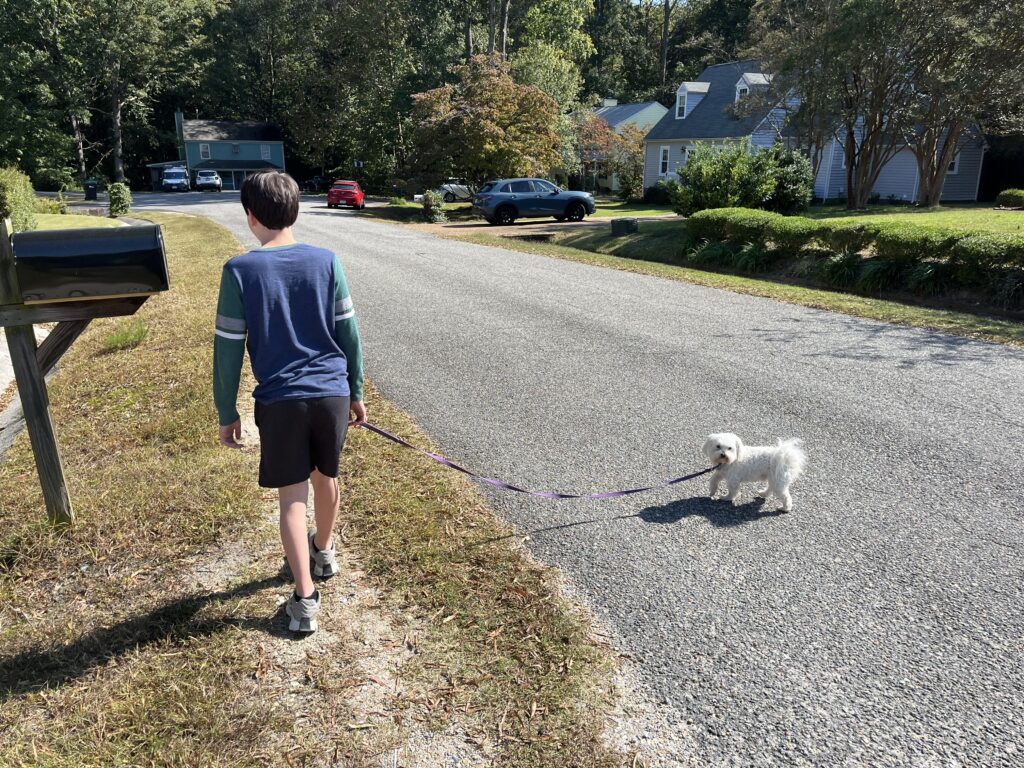
It sounds like a simple premise, but so many followers of God fall into these two opposite extremes. People miss their destinies when they act like Ralphie and Sally.
But there is another pet in our household whom I have not told you about. His name is Caesar, and he is an old, wise cat. We got Caesar the year we were married, and he lived up to his noble name every chance he got. Years ago, on our nightly walks with the dogs, Caesar began doing something amazing.
By his own free will, he would simply follow us on our walks. No need for a leash. No need for us to coax him. He just followed our gentle guidance every night for the mere purpose of being with us. Every now and then we would have to call his name, but he was always nearby.
I believe that in a world full of Ralphies and Sallys, God would rather we be like Caesar. The Lord doesn’t want us to tell Him where we are going rather than let Him lead, and He certainly doesn’t want to drag us from one destination to the next. He would rather we follow Him willingly, eager to remain in His presence.
In Matthew 8:18-22, two men express a desire to follow Jesus. The first is overly eager, not knowing what he is getting himself into. Jesus gives him a stern warning, explaining that he doesn’t know what he’s asking. The second man hesitates and says he needs to bury his father first. We never learn the fate of either man, but I hope they both abandoned their natural tendencies and learned to faithfully follow.
Whether you struggle with being too aggressive on your journey with God or whether you’re entirely too scared to take another step, I believe we can all grow in learning to be led
After sixteen years of being our cat, Caesar died peacefully this past March, but not before we had gotten a kitten named CJ. CJ is full of life and extremely playful. She was always so intrigued by our old friend Caesar that she started following him everywhere he went, even if it meant a walk around our neighborhood.
Caesar indirectly made a disciple with our young kitten, who now follows us on our walks every night. Despite how aggressive Ralphie wants to be or how timid Sally is, we now have CJ, just following along wherever we go.
Whether you struggle with being too aggressive on your journey with God or whether you’re entirely too scared to take another step, I believe we can all grow in learning to be led. If we will stay close to Jesus, we cannot help but fulfill His destiny for our lives.
About the Author
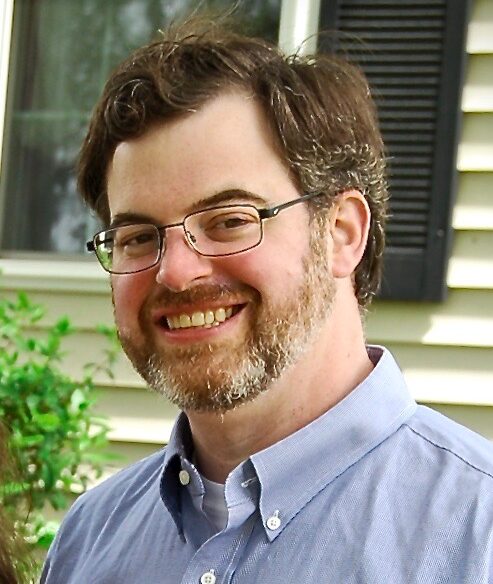
Bill Francavilla
Bill Francavilla is the lead pastor at Living Hope, an Open Bible church in Williamsburg, Virginia. Having lived in Virginia nearly his entire life, he attended Lynchburg College, where he studied history and theater. In 2017 Bill received his master’s degree in theological studies from Liberty University. He has been active in missions to Mexico, Dominican Republic, and Cuba. He and his wife, Jessica, have four children: Alex, Liam, Rita Grace, and Gino.

I am Shane Blackledge, and my wife Amber and I are the founding pastors of Cultivate Church in St. Louis, Missouri. My story is one of transformation and God’s grace, showing how He can use anyone to build His kingdom.

I was born in Colorado at the Air Force Academy Hospital. My father served in the Vietnam War, and while stationed in Taiwan, he met my mother and they got married. When I was six, my parents separated, and my mother moved back to Taiwan, leaving me devastated. As a kid, I faced racism and extreme poverty. I battled depression, anxiety, and thoughts of suicide. I started smoking and drinking at eight years old, joined a gang at age thirteen, and was using meth daily by the time I was fourteen.
At age seventeen, I was arrested and sentenced to thirty years in prison for selling drugs. I found myself in my jail cell wanting to end it all. On my night stand I found a Gideon Bible, and I opened it right to John 3:16. As I sat there reading, I realized I was a sinner, but that God created me and I had a purpose to live. I repented and asked Jesus to forgive me. I felt the Father’s love and the presence of the Holy Spirit in an indescribable way.
After my release, I struggled transitioning back into society (finding a job, paying rent, and finding a church that would accept me). I was discouraged and soon relapsed on meth. During the years of my addiction, I was sent to five prisons and was incarcerated for over six years. In 2006, after nearly dying from an overdose, I woke up from a coma and realized God had saved me from death. That day I fully surrendered to Christ, and that’s when my real transformation began.
In 2006, after nearly dying from an overdose, I woke up from a coma and realized God had saved me from death
God restored what addiction had taken from me. I have now been clean from meth for seventeen years. In 2013, I married Amber. We started attending Waverly Life Church, served as youth leaders, and eventually started a Celebrate Recovery program. In 2022, God called us to plant Cultivate Church in St. Louis, Missouri. We resigned from all ministries and jobs and sold our home. In April of 2023, we started house church gatherings which quickly grew in Christ and numbers. We launched our first Sunday gathering in October of 2023.
Today, we are a church without walls, modeled after the early church in Acts. We have regular church gatherings geared towards discipleship, street ministry, addiction recovery, Christian hip-hop events, prison ministry, and nursing home visits. We work with local treatment centers and recovery programs to support and mentor people. We have partnered with churches and ministries to organize monthly inner-city mission trips.
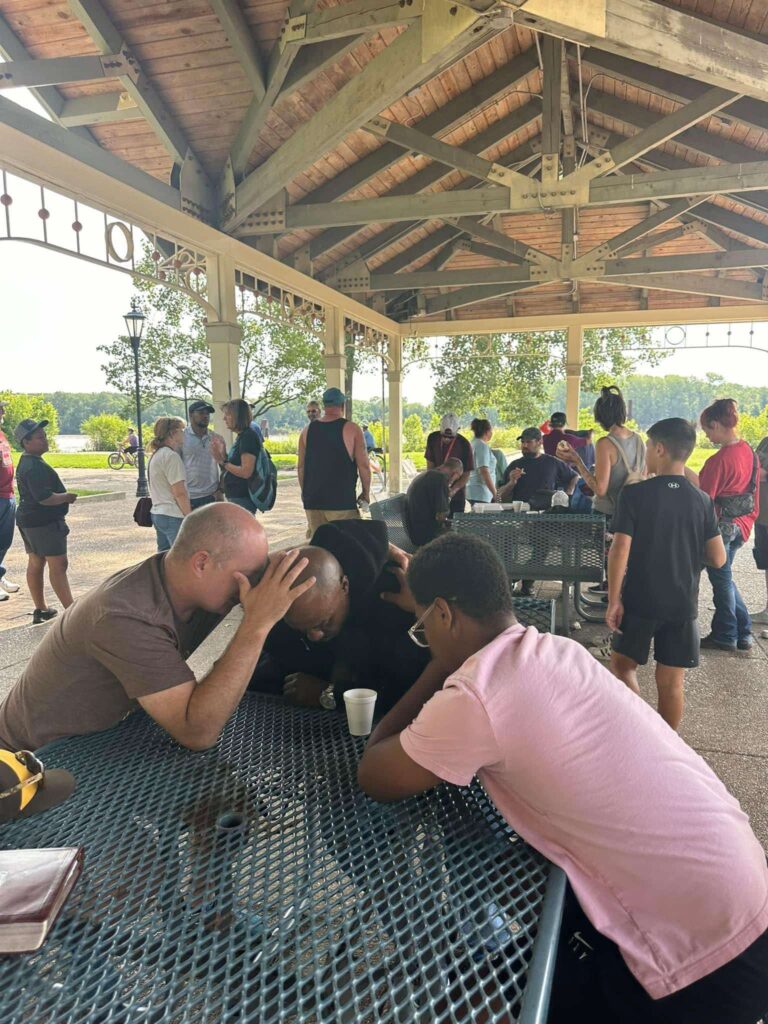
One way God has used my story is with my podcast: “Kingdom Minded,” which streams into 1000 prisons across the country on over one million inmate tablets. In partnership with the Edovo learning app, the podcast focuses on sharing testimonies and teaching Biblical principles.
Looking back, I am amazed at what God has done. In just a year our church has grown from a small group in our living room to a thriving community, passionate about sharing God’s love. Amber and I are excited about the future. We believe God is just getting started with Cultivate Church.
He can use anyone, even a former addict and convict like me, to build His kingdom.
My story and the story of Cultivate Church are really about God’s faithfulness. He can use anyone, even a former addict and convict like me, to build His kingdom. All the glory goes to Him.
To donate toward our prison ministry and homeless outreach, visit wearecultivatechurch.org or check out our Blessing Bags Gift Registry at HERE.
About the Author
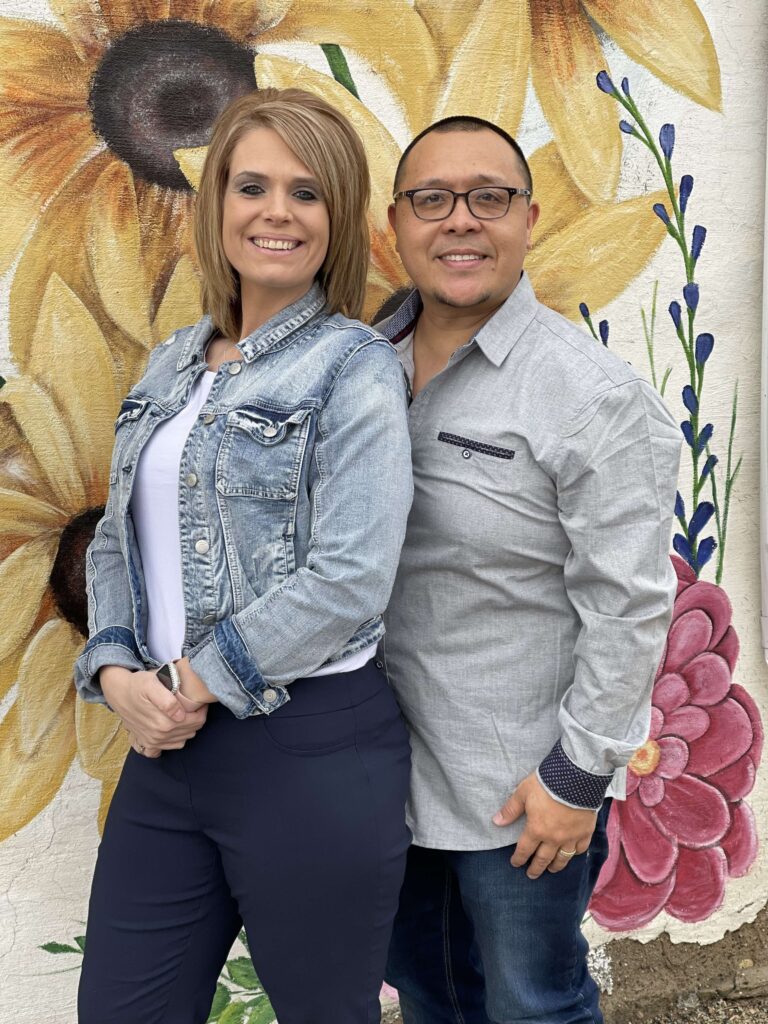
Shane R. Blackledge
Shane R. Blackledge is the co-founder and senior pastor of Cultivate Church. He and his wife Amber started Cultivate Church in their home in 2023. Today, the church is known for spreading the Gospel and being the church without walls. Shane’s podcast, “Kingdom Minded,” is available in over 1000 prisons on inmate tablets on the Edovo Learning App. Through testimonies and Bible principles, the podcast aims to teach, inspire, and equip Christians to live their best life now. Shane is an author and speaker, and his books From Prison to Purpose and Overcoming Codependency are available on Amazon. Shane and Amber have four children and live in St. Louis, Missouri.







